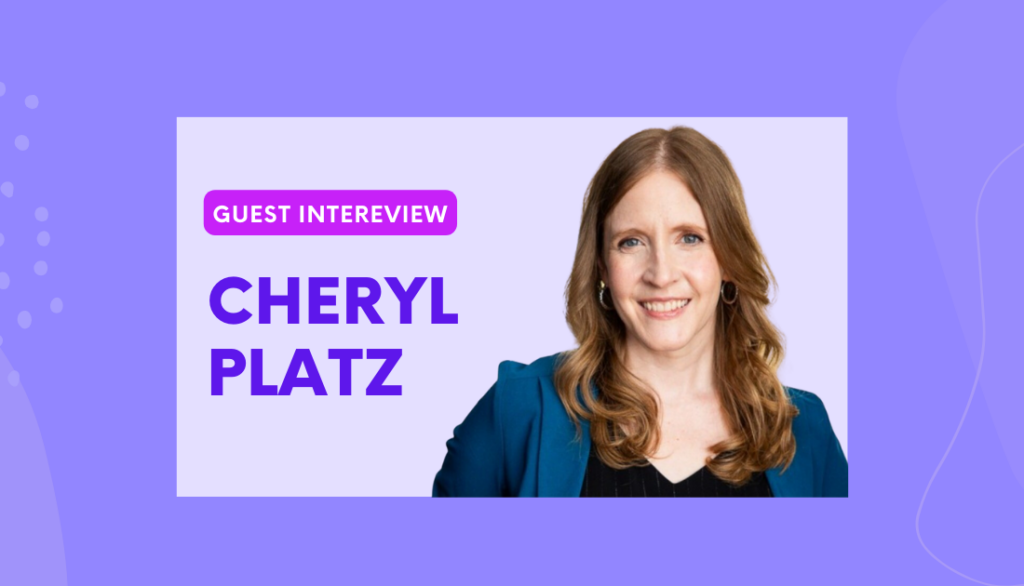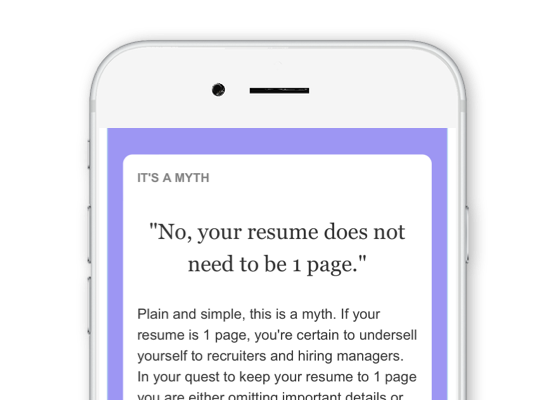Episode 67
3 ways to deal with burnout in your job search
23 min listen
Episode 15
23 min listen

Listen to the Episode
Episode Summary
Are you feeling burnt out from your job search? You’re not alone. In this episode, we tackle the issue of job search burnout and provide you with three practical tips to help manage and minimize it.
According to a study by the Pew Research Center, many job seekers experience feelings of pessimism, anxiety, and even relationship conflicts during their search. The key is to focus on what you can control and let go of what you can’t. We break down the variables you can control, such as the number and quality of job applications, follow-ups, and your attitude.
On the other hand, job descriptions, hiring processes, and whether you ultimately get the job are examples of things you can’t control. By identifying and prioritizing the variables within your control, you can shift your energy and mindset towards more positive outcomes. So, if you’re feeling overwhelmed and drained, tune in to discover practical strategies to combat job search burnout.
Create your dream career, and life
- Book a free Career Strategy Call to learn how we can help you
- Get our free Career Roadmap to help you navigate your career
- Check out Career Strategy Lab, our 3-month career coaching program
Discussion Questions About The Episode
- How has your job search experience impacted your mental and emotional well-being? Are there specific factors contributing to burnout that you have noticed?
- In your job search, what are some variables that you have been focusing on that are within your control? Are there any variables that you have been giving too much attention to that are actually out of your control?
- Reflecting on the concept of the law of attraction, how has your mindset and attitude influenced your job search experience? Have you noticed any shifts in outcomes when you have shifted from negative to positive thinking?
- Who are the people or sources of advice and wisdom that you turn to during your job search? Are they positively contributing to your mindset and energy, or do they add to your burnout and negative feelings?
- How can you implement the practice of auditing and editing who you listen to in your job search? What steps can you take to surround yourself with positive influences and support systems?
Episode Notes & Links
Episode Transcript
Sarah Doody [00:00:00]: I wanted to chat about this topic that I see pretty prominent right now, and that’s this whole issue with burnout in your job search. And As I was thinking about this, for many people and maybe even you, job search burnout is real, and it’s not just you. It happens to many people. I read this study by the Pew Research Center, which said that about half of all kinda adult job seekers in the United States are pessimistic about their prospects for a new job. I’ll get into some more data from that survey in a bit. I really wanna talk about factors that contribute to this whole concept of job search burnout and some really practical tips you can put into practice, hopefully, right now, to help you really manage and minimize this burnout that might be happening to you, or maybe you have people in your life and you think they could also benefit from these tips. It’d be great to pass those along to them as well. So let’s just jump right in.
Sarah Doody [00:01:21]: Back to that survey, the Pew Research Center survey. It said that 53% of people said they felt like they almost lost a piece of their identity during their job hunt, and 56% of people said that they’ve experienced more anxiety and depression and other mental health issues during a job search. And what I found really interesting was that it said 41% of people said that they’d had more relationship conflicts and problems with friends and family during the job search. And, Like, my takeaway from that is that job search burnout has this ripple effect in your life if you don’t manage it and get a hold of it. I totally get it. It’s a lot easier said than done to do a lot of these things. I have definitely felt like I was in burnout mode, not job search burnout mode, but burnout in general over the last couple of months, and it can really feel like for riptide that’s pulling you further and further away from the shore. With your job search, though, it’s Really important to get clear about the things that you can control and the things that, you know, you can’t control, and we’ll get into that in a little bit.
Sarah Doody [00:02:41]: And instead, focus your efforts on things that you can control. Because I see Sony job seizure seekers putting a lot of time and energy and focus on things that ultimately are out of your control. What we need to do is figure out how to shift your focus and energy over to things that are really within your control in your job search. The 1st tip I have for you is really to identify the variables that you can control and the variables you cannot control in your job search. And as I said earlier, a lot of people focus on the wrong variables, and it can really be helpful to spend some time reflecting on the variables that you’re currently focusing on so you can Maybe not focus on those ones in the future. So I thought it’d be helpful to run through a quick kind of breakdown of some of these variables so you can start to think about which ones you might be giving attention to versus which ones you should stop giving attention to. Feel free to write these down. Maybe grab a piece of paper and put it into 2 columns and put within my control and not within my control, and take notes as we go through these, and maybe you’ll have ideas as well.
Sarah Doody [00:04:04]: So in your job search, variables that are within your control, things that I think about are how many jobs you apply to. You have the control to either apply to multiple jobs every single day, which can add up to 100 over the course of a job search, or you cannot play the numbers game and take that approach. So that’s something you can control. You can control the quality of your resume, your LinkedIn profile, your cover letter, your portfolio, etcetera. You can control the quality of relationships and interactions that you’re having on LinkedIn and social media and elsewhere. You can control which jobs you apply to. Right? That kinda goes back to how many jobs you apply to, but a lot of people fall into the trap of just clicking quick apply or apply on anything that has a keyword related to the job they want. And that might give you an initial sense of progress, but it might not serve you in the long term.
Sarah Doody [00:05:05]: Other things that are within your control, whether you do follow-up after you apply for a job or whether you send a thank you email after an interview, how prepared you are for the actual job interviews, your attitude is something that’s within your control. Another thing is who you listen to for advice and wisdom, that’s within your control. You can control what you can what you consume on social media, which podcasts you listen to, which books, which YouTube channels, etcetera, and we’ll get into that in a lot in a little bit. And there’s probably a ton of stuff I forgot, but those are examples of things that are within your control. Now things that are not within your control, here are some examples that I brainstormed. So you can’t control the quality of job descriptions that are out there. You can’t control the hiring process. Right? We all know there’s problems with it, and you can’t control it.
Sarah Doody [00:06:07]: You cannot control how you’re treated in the interview process. Right? And you can’t control whether or not you ultimately get the job. You can’t control whether or not you get feedback if you ask for feedback. Right? Those are some of the examples of things that you can’t control. The reason I wanted to go through these is because I think it’s really important for you to differentiate between these things because I notice a lot of job seekers who complain and focus on a lot of the things in the can’t control category. For example, every time I log in to LinkedIn, because I was there this morning. I see people complaining about the quality of job descriptions. People love to screenshot job descriptions, highlight them, and say how ridiculous they are or unfair, this, that, and call out companies.
Sarah Doody [00:06:59]: Obviously, I’m not saying we shouldn’t ever call out things that are unfair or unrealistic, etcetera. That’s not what I’m saying. But if you are currently searching for a job right now, your sole focus should be on getting hired. And so if you are passionate about impacting and affecting change in your industry’s hiring practices, then tuck that away for kind of a side project or kind of thing you focus on after you get the job. But if you focus on that while you are job searching, I think that’s really gonna impact your mental health. It’s gonna keep you in a very kind of negative attitude type place. And, also, let’s face it, it’s also time and energy that you’re spending are not spending on your actual job search and maybe some of those variables you can actually control. Now that you’re hopefully, thinking about the difference between what you can control and can’t control in your job search, are there things that caused little alarm bells in your mind to go off, and you’re thinking, oh, maybe I have been focusing my time and energy on more things in the can’t control category, and maybe I do need to spend more time focusing on things in the can control category.
Sarah Doody [00:08:24]: I was thinking this morning that There might be some truth to this whole law of attraction thing about how positive thoughts bring positive results to your life, and negative thoughts bring negative things to your life. I’m not a super woo person, but I can definitely say that when I’ve shifted my mindset and attitude from negative to positive, things totally change. On the flip side, though, in the community for Career Strategy Lab, this career coaching program I run, We often see people come in with sometimes negative attitudes or baggage from whatever they’ve been doing in their job search so far, and there’s this focus on all the things they can’t control. And it’s also just so interesting, like I said, to see the shift when people’s mindsets change from negative to positive, and then all of a sudden, good things start to happen. They have more confidence. They finish their career materials faster, start getting job interviews, etcetera. So the 2nd tip I have for you concerning job search burnout is to audit and edit who you listen to and who you let influence you. And here’s what I mean.
Sarah Doody [00:09:42]: The more people you listen to and the more information you take in, The more opinions and ideas you have to filter and sort through, and oftentimes, as you might be thinking, There’s a lot of conflicting ideas out there as well when you listen to more people and get more information sources. And This is so true on social media, especially on LinkedIn. I don’t mean to harp on LinkedIn, but it’s where I spend most of my social media time these days, LinkedIn can be really useful in your job search. Right? At the same time, it can be extremely toxic. So my challenge to you is to be really mindful of how you use social media, whatever platforms you’re on. Right? And tactically speaking, if you notice that certain people’s posts make you feel bad or are negative or launch you into kind of comparison mode, then maybe that’s a sign that you need to Unfollow them or mute them depending on what platform you’re on for a time. Maybe not forever, but in this chapter where you might be at a job search or other goals that you have, maybe you need to turn down the volume or literally mute some of these people. Another thing you can do is limit your time on social media.
Sarah Doody [00:11:09]: And I know this seems like such a basic thing to say, but it’s something I think that everyone wants to do, but no one actually does. So we all know how easy it is to pick up your phone and then get lost in this trance of the feed and realize 20 minutes just went by. Right? So instead, if you’re in the middle of job searching or you wanna be more intentional, I think you need to create a schedule and dictate when you’re gonna spend time on social media So it doesn’t become this kinda go to thing that you just pick up your phone in spare time and all of a sudden you’ve wasted 20 minutes. So, Specifically, what you could do is, on your calendar, make a recurring event. 20 minutes, It’s 15 minutes, whatever feels right to you every day, once a week. I can’t tell you the schedule that’s gonna work for you, but the point is Put it on your calendar so you’re more intentional about it so that there is a specific time frame around it. I would even say be very mindful when you schedule this in the day. It might be to your benefit to put your social media time at the end of the day so that you don’t start your day with the potential for negativity or comparison or whatever might come up for you.
Sarah Doody [00:12:36]: So that’s another thing you can do. And then the 3rd kinda idea around social media is have a plan for why you’re using social media in your job search. I think A lot of times, you just hop on LinkedIn, and you’re in a lean back consuming content mode where it’s just, like, coming at you every time you scroll. Right? And instead, maybe make a plan to be more intentional. And Here is what I mean. If you’re job searching, it is in your best interest to be engaging with people who work at the companies where you wanna work or where you’ve applied to and to engage with content from those companies’ pages. In LinkedIn recruiter, sometimes called talent solutions, in that algorithm that prioritizes candidates based on how qualified they are and how likely they are to reply to a recruiter reaching out to them. The number of connections that you have at that company and the engagement level that you have with people at that company and the company’s page, that is factored in.
Sarah Doody [00:13:52]: So instead of just consuming content on LinkedIn, you should really shift your strategy to engaging on LinkedIn. So those are the 3 things that you could do to help curb the negativity that can often come from social media usage in your job search. And to get a little bit philosophical, I would say that we see the studies about Facebook and Instagram and etcetera and the impact that it has on the mental health of people with with reference to, like, fitness or beauty and all of these things. And I think if we studied how social media affects people in their careers and their job search, we would find very similar shocking data. Maybe there’s studies out there about that. I haven’t done it, but I think it’s not a stretch to make that assumption. So This is why we need to audit and edit who you listen to and your usage of social media, not just during your job search. Honestly, I think, like, in general, this can make your career and your work week a lot more pleasant and positive.
Sarah Doody [00:15:12]: Okay. The 3rd tip I have for you regarding burnout in your job search is that before you jump to conclusions, you have to consider the context. And this one’s really important, and, again, it’s Easier said than done. But I see so many people in their job search jumping to conclusions and making up stories that simply aren’t true in order to kind of fill in the blanks of stuff that happens in your job search. So let me give you an example. Let’s say you apply to a job. You go through all the interviews. You don’t get the job offer.
Sarah Doody [00:15:52]: And many people’s first reaction is to come up with a list of all the reasons why. Oh, I didn’t get the job because I’m not qualified, or I don’t have enough experience, or I’m not good enough, or I don’t know this software or whatever it is. Right? And then it quickly spirals into all this negative thinking and ends with I’ll never get hired. You go from 0 to I’ll never have a job again in 60 sec. And so the thing is these conclusions that you make without context are super dangerous. And when you talk like this and when you think like this, you start to believe these things, and it just adds fuel to the fire. I listened to this podcast with Brene Brown. I forgot which one.
Sarah Doody [00:16:38]: It was years ago, but she talked about how our brains are wired for stories. And when something happens, like you don’t get the job, our brains wanna know why. And so our brains make up the ending of the story or the reason why, and then our brains just believe it because they don’t know the difference between fact and fiction when they’re quickly trying to fill in, like, the rest of this story. And so that’s why jumping to these conclusions without the context is so dangerous. So, for example, if you don’t get the job offer, There’s so many reasons why that have nothing to do with you, your skills as a professional, your worth as a human, and the company could have changed their priorities and hired no one, or the budget could have been cut. They could have ended up hiring an internal candidate because sometimes companies have rules around that. You could have had All of the call qualifications, you could have matched everything on the job description, but maybe someone else had a bit of an edge. Like, for example, if you applied to a job and it was in the finance industry, you’re like a product designer applying for a job at a finance company.
Sarah Doody [00:17:58]: You ticked all the boxes, but someone else ticked all the boxes, and they had experience previously working in the finance industry, that could have been the thing that kind of put the scale in that other person’s favor. It’s not that you didn’t meet the qualifications of the job description. It just means that someone else had additional traits, characteristics, qualifications, skills that weren’t even on the job description, but in the end, made that company go with them. And I know this stuff is sometimes frustrating to hear. Right? But I think it’s important to remember that context because it’s so easy to blame yourself and try and figure out what’s wrong with you. And oftentimes, it doesn’t have anything to do with you. Another example that I was thinking of this morning was, A lot of times candidates fixate on this idea of ghosting in the job search or when they ask for feedback, why didn’t I get the job, they don’t get personalized feedback, and then you’ve seen posts on LinkedIn where people say companies should, without a doubt, give candidates feedback. It’s unfair not to give feedback, etcetera, and it’s okay.
Sarah Doody [00:19:15]: In a perfect world, that would be nice. But let’s look at the context here. If a company is got an open job position and 300 people apply for a job, is it conceivably possible that recruiter or hiring manager can write a nontempleatized note back to each of these 300 people and tell them 3 tips to improve their resume. Like, to me, that is completely unrealistic. And so that’s another example of focusing on variables that are within your control and not within your control, but also, like, making the assumption that because you didn’t get personalized feedback or because someone ghosted you, like, they’re a jerk or they have unfair hiring practices, etcetera. So, hopefully, that gives you some examples to think about concerning why you can’t jump to conclusions and why even though in a perfect world, it would make sense for companies to be different in the hiring process. But when you consider the context of how the world in hiring works, I don’t think it’s possible for companies to write 300 personalized notes with tips for how to improve your resume. I know that was a lot, and I wanna do a quick Recap here about everything we covered about job search burnout.
Sarah Doody [00:20:49]: So to recap, Our tips for job search burnout. We have number 1. Be mindful about what variables you can control and not control in your job search because you only have so much time and energy, and you don’t wanna waste it on things you can’t control. Number 2, We need to audit and edit who we follow on social media, what content we let into our lives and inboxes. You don’t want to be afraid to temporarily unfollow, edit, mute, etcetera, people that don’t bring positivity to your social experience. And the 3rd tip here is to consider the context before jumping to conclusions. We don’t wanna be making up hypothetical stories without the facts without the context. Otherwise, we’re just adding fuel to the fire of negativity, and we are adding to the chance of more anxiety, depression, burnout, etcetera.
Sarah Doody [00:21:49]: So be careful about jumping to conclusions and consider that context first. Alright. That is all I have for you today. I hope you found this helpful. I hope it helps you change how you think a little bit about this and also helps you remember that There are things within your control that you can do to help deal with some of this so it doesn’t have a ripple effect in the rest of your life. Make sure to follow me, Sarah Doody, on Twitter, Instagram, YouTube, or LinkedIn. If anything in today’s episode resonated with you, I’d love to hear about it. Tag me on social media or send me a DM.
Sarah Doody [00:22:33]: And, lastly, if you found this episode helpful, I’d really appreciate it If you could share it with a friend or give us a quick rating on Spotify or review on Apple Podcasts.













